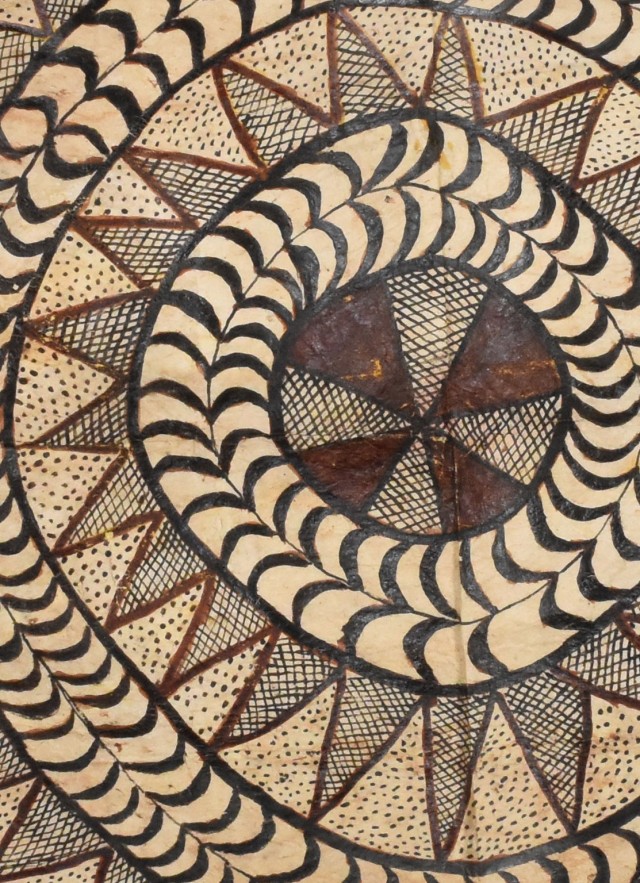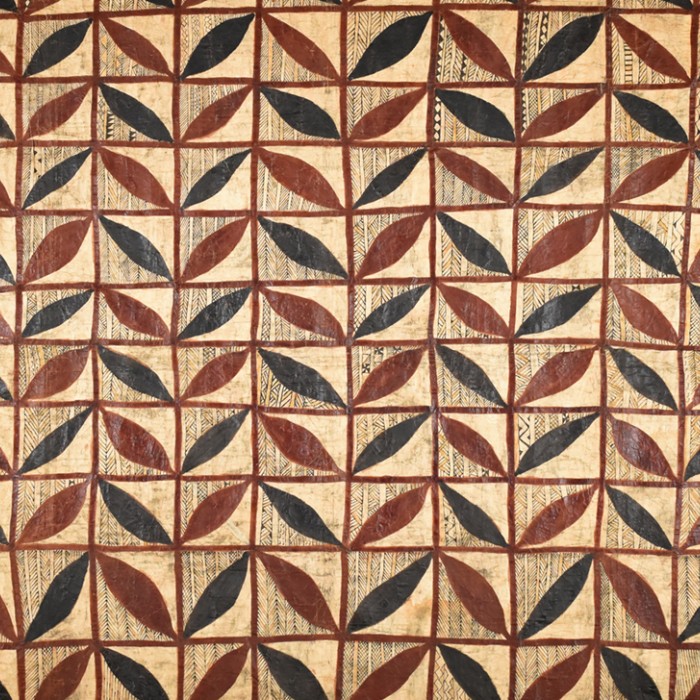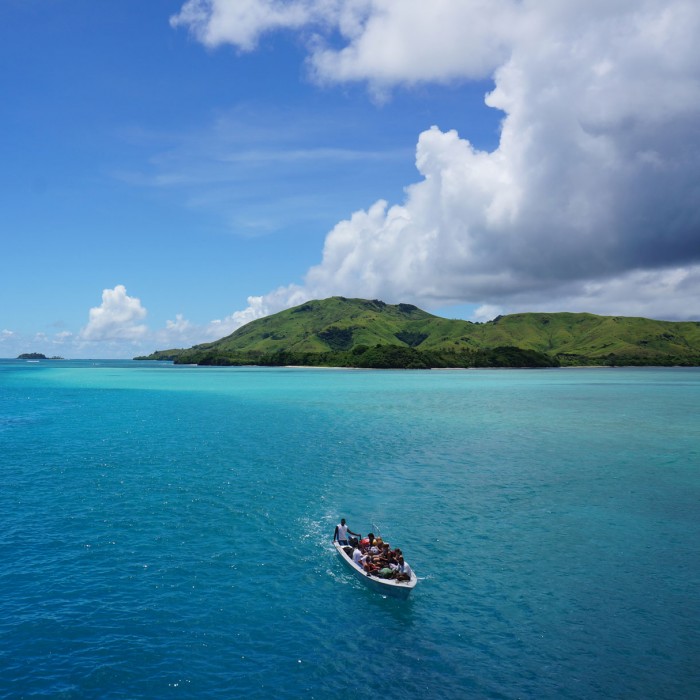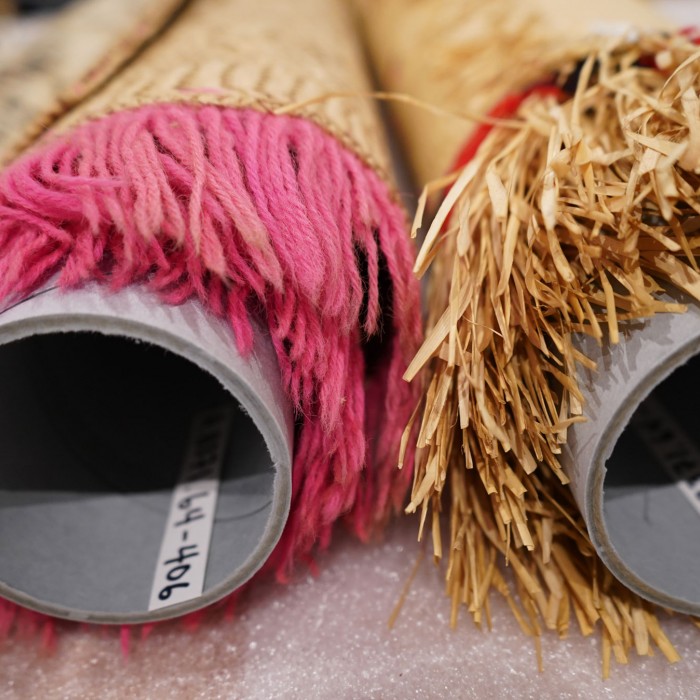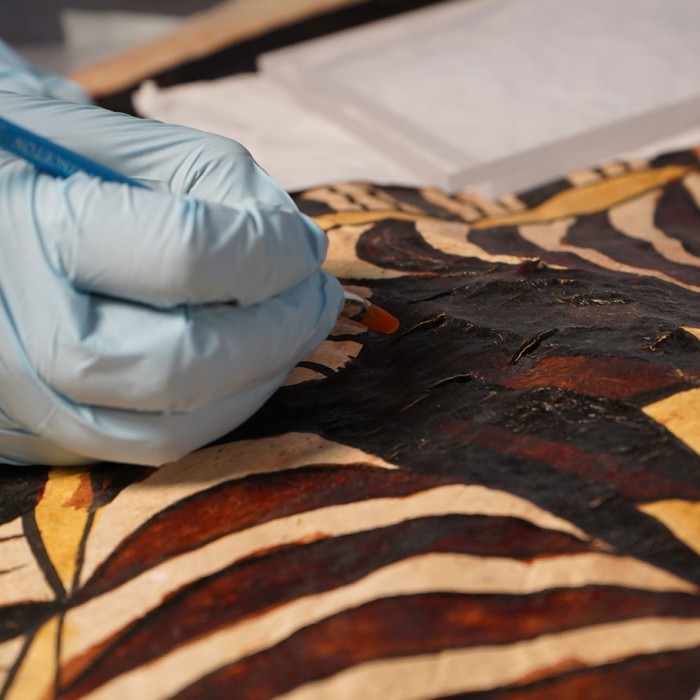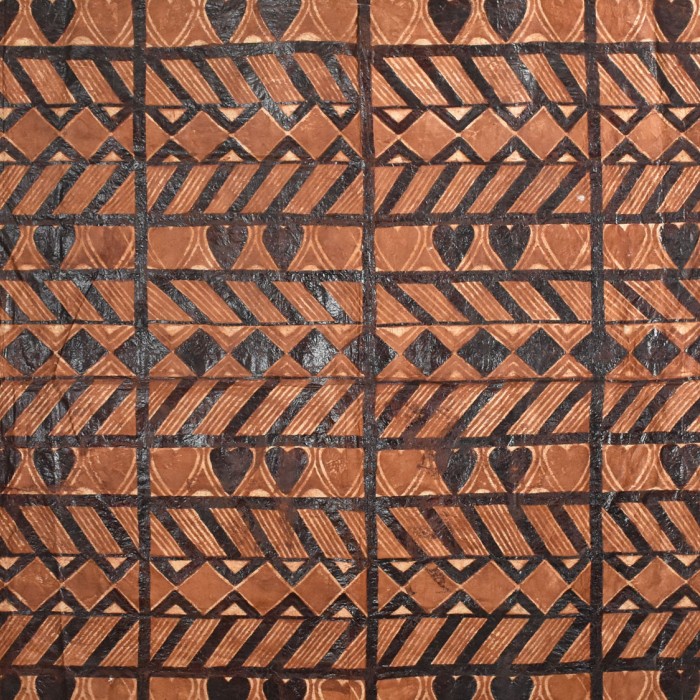The Fabric of Community
Faitau itulau ile gagana Samoa
Tapa, to me, is both a way of expressing life and a tangible expression of life.
—Katrina Talei Igglesden (Fijian)
Tapa (barkcloth) and woven mats made from plant fibers are produced in communities all over the world, but especially among the many cultures of the Pacific Islands. Historically used as clothing and body adornments, among other purposes, these fabrics symbolize respect, connection, and kinship, and are often made for and gifted at weddings, funerals, and other important life events.
The Natural History Museums of Los Angeles County (NHMLAC) care for many tapa and woven mats—this online exhibition, made possible by a grant from the National Endowment for the Humanities, marks the first time we are providing access to the bulk of this collection. In partnership with advisors from Pacific Island communities in Southern California, we hope to introduce our collection of tapa and woven mats to a larger audience, as well as to create a useful resource for anyone with a connection to these stunning examples of Pacific Island cultural heritage.
This exhibition also aims to address the history of our collection. The tapa and woven mats at NHMLAC were mostly bartered, bought, or gifted, but the collection is a result of American and European colonization of the Pacific Islands region, which brought about the destruction of many traditional lifeways. It was also assembled largely by people with an outsider's perspective on Pacific Island cultures. Find out more about the history of the collection, or about the steps we are taking to work with Pacific Island communities on treatment, presentation, and interpretation of these items of important ancestral heritage.
We welcome comments and feedback on our collection or this exhibition, as well as any stories or information you may like to share about tapa and woven mats. Please join the community.
ACKNOWLEDGEMENTS
The Natural History Museums of Los Angeles County wish to thank the following community members for their support with this project: Audrey Alo, Cindi Alvitre, Juliann Anesi, Katrina Talei Igglesden, Fran Lujan, Kirisitina Sailiata, Tavae Samuelu, Kelani Silk, Lolofi Soakai, Asena Taione-Filihia, and Craig Torres. The Fabric of Community has been made possible in part by a major grant from the National Endowment for the Humanities (NEH): Democracy demands wisdom. Any views, findings, conclusions, or recommendations expressed in this exhibition do not necessarily represent those of the NEH.
